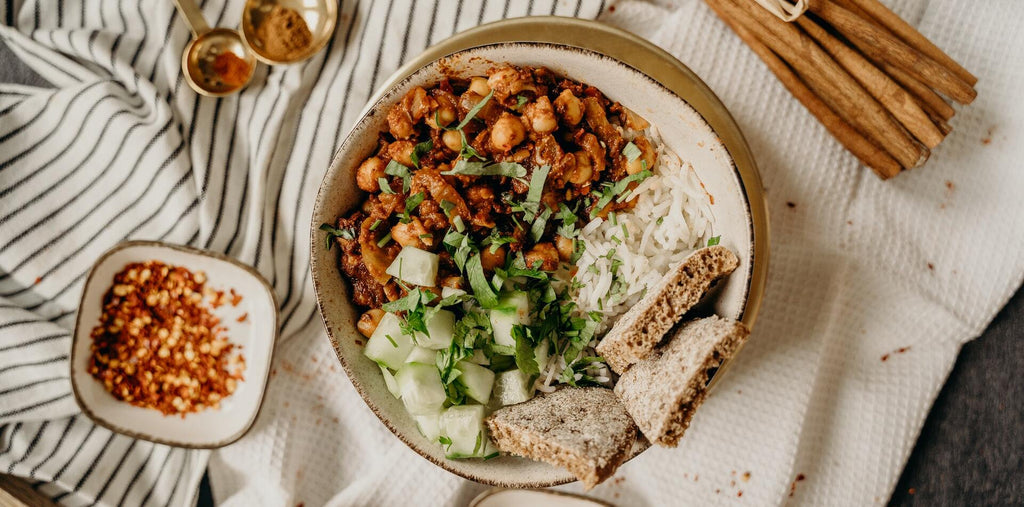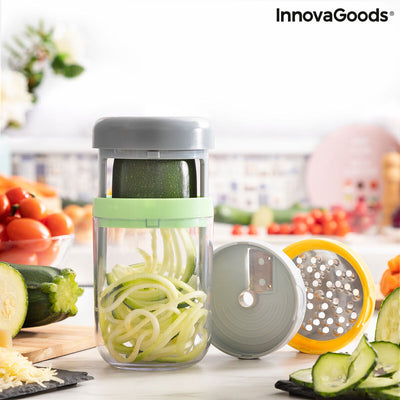Guide To Picking Carbs To Upgrade Your Energy & Productivity
Have you ever felt those energy cramps after a fatty filling lunch that make you want to sleep right at your work desk? You should have noticed that a too-sugary snack can cause a "brain fog" while working too long on an empty stomach makes you easily irritated. Many busy achievers find themselves trapped in low productivity due to poor eating habits. No wonders survey claims that people with unhealthy diets are 66% more likely to have poor productivity.
Though, in some cases skipping meals isn't the worst thing for your energy and efficiency. Overeating or choosing the wrong meals for your lunch can easily ruin your day and turn you into a hibernating bear. But your company hired an experienced professional — not a sleepy bear! So to make sure your diet and snacking will never stand in the way of your productivity, the first thing to consider is carbs. Dive in and discover how carbs can affect your energy and productivity, boost your brain performance, and make you healthier.
Carbs: why they matter to your diet?
With the world gone mad about diets, counting calories, and low-carb meals, it can be hard to believe that carbs matter for your diet and energy. But the fun part here is that carbs are the primary source of energy for your body. According to dietitians, around 45-65% of your daily meals should consist of carbs. Though some people think that eating carbs leads to obesity or diabetes, your body can't live without these nutrients.

There are three types of carbs:
- fiber
- starches
- glucose
Still, not all of them are essential for your health and energy. For example, American Heart Association claims that your body doesn't need additional glucose to function healthily. At the same time, eating too many starches can contribute to your fatigue and increase blood pressure. But as all bread is not baked in one oven, carbs are also different in their effect on your energy, health, and productivity. Let's get to know how to differentiate helpful carbs from unhealthy ones.
Simple carbs vs. complex carbs: what's the difference?
You should have heard those statements that simple carbs are a one-way road to obesity and diabetes. But before believing these loud statements, it's better to learn how simple and complex carbs work.
Simple carbs consist of short-chain molecules, which makes them digest quicker in your intestine. When you consume simple carbs, they quickly send a glucose burst to your blood, supplying your body with immediate energy. However, this burst doesn't last long - sugar crash, energy cramp, and "brain fog" will replace it soon afterward. In addition, simple carbs are mainly present in refined sugars, which you consume with junk foods, sugary snacks, and sweet drinks. So they digest quickly, leaving you hungry, and don't bring any healthy nutrients (like vitamins or minerals) to your diet.

Still, there are simple carbs beneficial to your health! You can find this type of carbs in milk, yogurt, and fruits. These products, unlike junk food, contain helpful bacteria, antioxidants, vitamins, and minerals to maintain your micronutrient balance. So it's clear we can't say that all simple carbs are that bad for your diet. Though, limiting their amount may help you get fitter and possibly avoid metabolic and heart diseases.
Then what about complex carbs? They consist of long-chained molecules, meaning your intestine will need more time to digest them fully. What're more, complex carbs release glucose slowlier, without causing blood sugar spikes and sugar crashes. That means they are a more solid source of energy, which makes you fuller without overeating and keeps your stamina high for a more extended period.
The primary sources of complex carbs are starches and fiber, present in unrefined whole grains, vegetables, legumes, fruits, nuts, and seeds. And both of them, in specific doses, are essential for your health and nutrition. For instance, fiber acts as a probiotic, helping your body create more beneficial bacteria in your guts. Since there's a strong link between your guts and brain, fiber contributes to short-chain fatty acid creation, beneficial to learning and memory.
At the same time, starches are true antioxidant, mineral, and vitamin powerhouses, bringing your body more nutrients for immunity strengthening, heart health, and brain protection. Research claims that starches contain such antioxidants as beta-carotene, lutein, vitamin C, and beta-cryptoxanthin. If that wasn't enough, they are also rich in magnesium and potassium minerals, contributing to your memory and brain health support.

Though complex carbs seem to be way more beneficial to your health, your body needs both types of carbohydrates to function properly. But when you're deciding what you should get for a meal, how to define which carbs to choose? Questions like "Is stuffed potato a complex or simple carb?" and "Should I choose whole-grain pasta?" can make your head spin. That's why we created a list of the best carbs for your productivity and solid energy - to make a choice easier and quicker for you.
Since you may have different purposes, we've decided to divide carbs into two lists by benefits: energy and brain performance. Get to know which carbs are best suited for each of those purposes.
Best carbs for long-lasting energy
Sweet potato
Are you wondering what you should get for a garnish to stay energized for the whole day long? Then don't think twice and pick sweet potato since it's a rich source of nutrients and fiber. According to the BBC Good Food research, a steamed sweet potatoes serving contains vitamin C, potassium, and beta-carotene.

Sweet potatoes are a good source of complex carbs - long-term energy source. High in vitamins A and C it's a nutritious vegetable that most people enjoy eating. The texture of sweet potato makes it perfect for most dinner recipes. It can be baked, stuffed with ingredients like peas or cranberries, or boiled with some salt for a healthy side dish to any meal.
Due to the fiber and starches content, sweet potatoes will digest slowlier than white potatoes, releasing glucose steadily. Meanwhile, vitamin C and potassium are potent antioxidants, which help you reduce fatigue-inducing inflammation. In turn, beta-carotene in sweet potatoes also contributes to your immunity strengthening.
To make your meal filling, healthy and energy-boosting, you can pair boiled or steamed sweet potato with baked chicken, turkey breast, and vitamin salads.
Chickpeas
Another fantastic complex carbs option belongs to the lentils family, and it's one of the best complex carbs for your energy levels ever! Study shows that these beans are extremely rich in fiber, which means it also digests slowly without causing blood sugar spikes or hunger soon afterward.

Surprisingly, it's also bursting with protein - just 100 grams of cooked chickpeas contain 8,86 grams of protein. What's more, it has 11 vitamins and 10 minerals, being a true superfood legume, so by eating these beans, you get tons of healthy nutrients at once.
Though chickpeas may cook really long, there are plenty of options for how you may add it to your meal without spending hours in the kitchen. You can get it as a ready-made hummus in the store or soak them in hot water and eat them raw - this way, you'll get even more nutrients!
Avocado
This green fruit (yeah, not a veggie) has conquered the world recently, being a trending ingredient for bowls, toasts, and salads. You can even find cafes dedicated solely to avocado dishes. And there's a strong reason for that because avocado contains complex carbs in the form of fiber and tons of helpful nutrients!

Nutrition Science Solutions research shows that half of the avocado (around 68 g) contains 4,6 grams of fiber. Besides, this fancy fruit is full of vitamins and minerals, beneficial to your energy metabolism. So it's clear that avocado isn't just a passing trend - it's a fruit that can help you get more energy for all your daily activities.
You can add avocado to your breakfast (it tastes great with eggs and salmon)! Or mix it with greens for a nutritious and filling salad, and smash it into a tasty spread for toasts.
Best carbs for high brain performance
Walnuts
Do you need a complex carb to sharpen your mind and make your brain more productive? Say no more - walnuts are here for you as one of the best nuts to support your cognitive performance and health. First, they are rich in fiber - an outstanding energy source - but the most crucial part is that walnuts may protect your brain cells.

Nutrients journal study has discovered that these nutritious nuts contain antioxidants, which can help you reduce oxidative stress and inflammation, damaging your brain. At the same time, numerous surveys have found that consuming walnuts may improve your cognitive performance, learning, memory, and stress response.
You can add walnuts to salads and bowls, mix them with your favorite porridge, oatmeal, or dessert. Still, they are also an excellent standalone snack when you want to boost your brain quickly.
Broccoli
You may remember broccoli as the veggie that you couldn't stand as a child. Still, there's no reason to avoid it in your diet because broccoli is an ultimate brain superfood! It's bursting with vitamin C, folate, potassium, and iron. Research claims that broccoli, just like other green veggies, has antiamnesic properties, helping you to create long-term memories.

In addition, according to the study, broccoli is rich in lutein, which may boost your reasoning skills and protect your brain from oxidative damage. And don't forget that broccoli is still a source of complex carbs that contains fiber for long-lasting energy.
Another great thing about broccoli is that you can cook it in tons of different ways. You can boil it as a garnish for meats, add it to salads, pies, and roast it in bread crumbs.
Black beans
Legumes like black beans are indeed a fantastic option for bringing you solid energy for the whole day. Still, they're much more than that, being also potent support for your brain performance. As black beans are extremely rich in fiber, by eating them, you make sure that you won't get a "brain fog" because of the blood sugar spikes.

They digest for hours, releasing glucose slowly, keeping you full. Moreover, black beans contain a lot of iron, which helps supply your brain with oxygen. Since iron deficiency can negatively affect your work productivity, consuming black beans may improve your performance!
You can get them in a canned form, boil as a garnish for a meal, mix with veggies in a salad, or add to soups and stews.
Tips for picking the right carbs for your energy and productivity
- Select veggies and fruits instead of sugary bars and pastry. The study claims that achievers who rarely eat fruits, vegetables, and other low-fat foods at work have 93% higher chances of being unproductive at work. So when you're deciding what you should get for a snack, it's always better to pick veggies and fruits instead of refined foods like sugary bars.
- Add more whole-grain products to your diet. When you see the mark "whole-grain" on the bread, pasta, or oatmeal pack, then it means those products can benefit your energy and brain. Such products are richer in fiber and digest slowlier than refined grains.
- Pick low-fat dairy. Simple carbs, present in dairy products, will be more healthy for you if they are low on fat and sugar. That way, they won't cause blood sugar spikes and sugar cravings. So instead of flavored yogurts and sweet milk, pick plain and low-fat options.
- Infuse your meals with nuts and seeds. Are you wondering how to make your meals more fiber-rich without changing your diet? We have a simple trick for you - just add seeds and nuts to your meals as a topping. That way, you can get more complex carbs, fiber, and micronutrients without altering your eating habits.
Resources:
- Poor Employee Health Means Slacking On The Job, Business Losses (2012)
- Carbohydrates: How Carbs Fit Into A Healthy Diet (2020)
- Sugar 101 (2018)
- Carbohydrates (2018)
- What Are Healthy Simple Carbohydrates? (2018)
- Role Of Dietary Fiber And Short-Chain Fatty Acids In The Colon (2003)
- What Are The Benefits Of Starchy Vegetables? (2018)
- Top 5 Health Benefits Of Sweet Potato (2021)
- Potassium Induces Positive Changes In Nitrogen Metabolism And Antioxidant System Of Oat (2015)
- The Nutritional Value And Health Benefits Of Chickpeas And Hummus (2016)
- Hass Avocado Composition And Potential Health Effects (2013)
- Beneficial Effects Of Walnuts On Cognition And Brain Health (2020)
- 5 Reasons Why Broccoli Is The Ultimate Brain Food (2018)
- Parahippocampal Cortex Mediates The Relationship Between Lutein And Crystallized Intelligence In Healthy, Older Adults (2016)
- Effect Of Traditional Household Processes On Iron, Zinc And Copper Bioaccessibility In Black Bean (Phaseolus Vulgaris L.) (2018)








